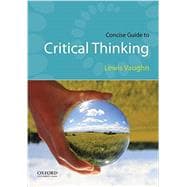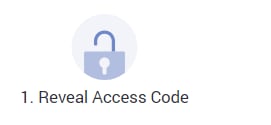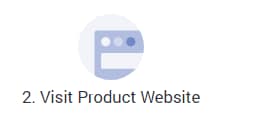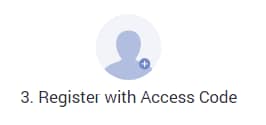Lewis Vaughn's Concise Guide to Critical Thinking offers a compact, clear, and economical introduction to critical thinking and argumentative writing. Based on his best-selling text, The Power of Critical Thinking, Fifth Edition, this affordable volume is more manageable than larger textbooks yet more substantial than many of the smaller critical thinking handbooks.
FEATURES
* Six chapters on identifying, evaluating, and devising deductive and inductive arguments
* A chapter on obstacles to critical thinking
* Comprehensive coverage of inference to the best explanation
* Extensive treatment of scientific reasoning, with chapters on inductive reasoning, causal arguments, scientific theories and inference, and scientific method and theory evaluation
* Emphasis on evaluation of evidence, authority, and credibility
* A chapter on fallacies and rhetorical persuaders
* A substantial chapter on writing argumentative essays
* Numerous exercises, including review questions, exercises for applying critical thinking skills, writing assignments and prompts, and self-assessment quizzes











